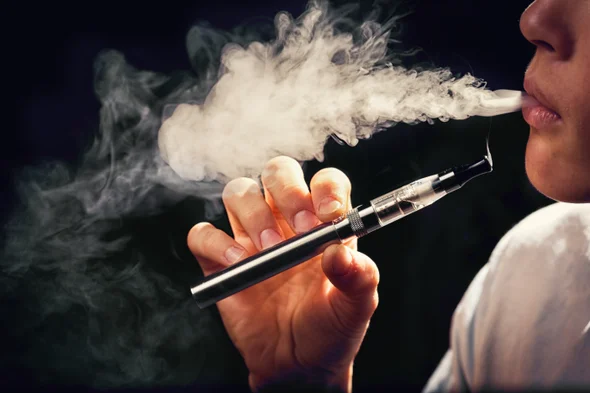Vaping on the NHS? – Will S
If you haven’t been living under a rock for the last 5 years, you’ve probably heard of vaping. There are many kinds of vapes, disposable ones, small pens that easily fit in the pocket or larger vapes that are more powerful any have longer-lasting batteries. The Bubble by no means advocates vaping and would discourage all pupils from vaping due to the health risks. It is these health risks however around which this article is centred – no, this is not an article to tell you why you shouldn’t vape, but rather how vaping can help people.
The Medicines and Healthcare Products Regulatory Agency (MHRA) has recently updated its guidance so that medically licensed vaping products can be prescribed to smokers who want to quit. This would make Britain the first country in the world to prescribe vaping as a method of quitting cigarettes, though there are many hurdles e-cigarette companies (largely owned by tobacco companies) will need to jump over to meet the consumer standards required to be medically licensed.
The main reason why vapes would be beneficial, and are beneficial to people trying to quit smoking is their similarity to smoking. Whilst the feel is slightly different, people are still inhaling nicotine in a vapour rather than smoke, something that other stop smoking devices such as nicotine gums or patches cannot do. It is important to note that on its own, nicotine is relatively harmless to adults, but that what is harmful is the other substances that are used to get nicotine into the body. A person that uses an e-cigarette to quit smoking, along with expert face-to-face support, was estimated twice as likely to succeed in quitting compared to someone that uses gum or patches. Furthermore, in 2017 it is estimated that 50,000 people quit smoking that would have otherwise continued if not for vapes (an estimated 67% of which would have otherwise perished due to smoking-related illness).
Another reason why vapes being prescribed would be beneficial is the fact that they are significantly less dangerous than smoking. E-cigarettes do not produce tar or carbon monoxide, the most damaging components of normal cigarettes. Whilst e-cigs are relatively new and we still do not know the full health impacts of their use, Public Health England has stated that vaping is 95% less harmful than smoking, partly because there is no good evidence that vaping causes cancer (something that tobacco smoke causes), and similarly no good evidence it causes lung disease. Vapes are not without risk and some potentially dangerous chemicals have been found in e-cigarettes but levels are usually low and generally far lower than in tobacco cigarettes and exposure may be the same as people who use nicotine replacement therapy such as patches or gum.
There are often headlines about how vapes attract children, with their myriad flavours, bright colours (as displayed above) and relative ease to get, however the converse argument is that smoking kills 480,000 people a year in the US, and vaping has only killed 68 there in total, most of these having come from the illicit vaping of THC (the active ingredient in marijuana). ““`Another common concern is that people can consume far more nicotine than they can in cigarettes and this is true however there are legal restrictions on the maximum nicotine strength, in the UK at least (20mg).
There is yet to be a licensed vape on the market, and so currently GPs cannot prescribe e-cigarettes to help people quit smoking, however, once there is (the chances are there will be), we could see the number of people quitting smoking be much higher. Obviously, vapes do not come without any health risks and it is much better to not use any such device at all, so the advice is firm that if you do not already smoke, it is not good to start vaping. During the teenage years, nicotine can cause slow brain development and affect memory, concentration, learning, self-control, attention, and mood. Ultimately though, a number of studies have all suggested vaping is far less harmful than smoking, so at the moment vapes on the NHS would appear to be a positive thing.
WS

















Post Comment
You must be logged in to post a comment.